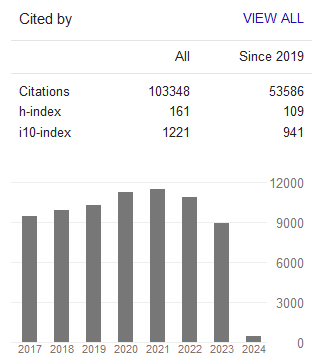Exploring the Leadership Preference of Malaysian Generation Y Employees: A Conceptual Paper
- Sharizan Sharkawi
- Syed Syed Mohamad
- Rosmimah Roslin
Abstract
Generation Y, individuals age 34 years and below are dominating the workforce in Malaysia today with nearly half of the labour force comprised of this generational cohort. They will be playing a vital role in the Malaysian labour market and will have unprecedented impact to the country’s future economic growth. However, a dilemma confronting leaders today is the limited understanding when leading the Gen Y. This paper is not empirically based but merely conceptual in nature. It is aimed at presenting the preliminary work for a study. The concepts of leadership and the many theories that have evolved are examined. Review of past literature concerning the Gen Y and their leaders are deliberated. From the literature review, many missing parameters were discovered. Firstly, studies in Gen Y mostly covers motivation, values, behaviours, job satisfaction and organisational commitment but not on leadership preferences per se. In addition to that many of the studies conducted are in the Western perspectives and to accept the results entirely will be an over-generalisation. Lastly, the field of leadership is continuously evolving inspired by the current wants and needs. Thus this brings light to the intention of this study which is to explore the leadership preferences of Gen Y employees specifically looking at the local context. The conceptual framework proposed as the foundation of this study consists of the different leadership theories from early days of trait theory to the more contemporary transformational leadership theory. This conceptual framework will guide in the data collection process whereby a basic qualitative method is proposed as the most suitable approach for this study. It will be based on the interpretive or constructivist perspective where multiple realities and lived experiences of Gen Y concerning their leadership preferences will be uncovered through in depth interviews with the participants involved.
- Full Text:
 PDF
PDF
- DOI:10.5539/ijbm.v11n8p152
Journal Metrics
Google-based Impact Factor (2023): 0.86
h-index(2023): 152
i10-index(2023): 1168

Index
- Academic Journals Database
- AIDEA list (Italian Academy of Business Administration)
- ANVUR (Italian National Agency for the Evaluation of Universities and Research Institutes)
- Berkeley Library
- CNKI Scholar
- COPAC
- EBSCOhost
- Electronic Journals Library
- Elektronische Zeitschriftenbibliothek (EZB)
- EuroPub Database
- Excellence in Research for Australia (ERA)
- Genamics JournalSeek
- GETIT@YALE (Yale University Library)
- IBZ Online
- JournalTOCs
- Library and Archives Canada
- LOCKSS
- MIAR
- National Library of Australia
- Norwegian Centre for Research Data (NSD)
- PKP Open Archives Harvester
- Publons
- Qualis/CAPES
- RePEc
- ROAD
- Scilit
- SHERPA/RoMEO
- Standard Periodical Directory
- Universe Digital Library
- UoS Library
- WorldCat
- ZBW-German National Library of Economics
Contact
- Stephen LeeEditorial Assistant
- ijbm@ccsenet.org
